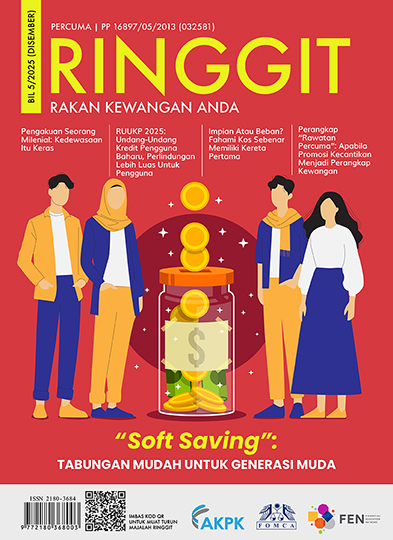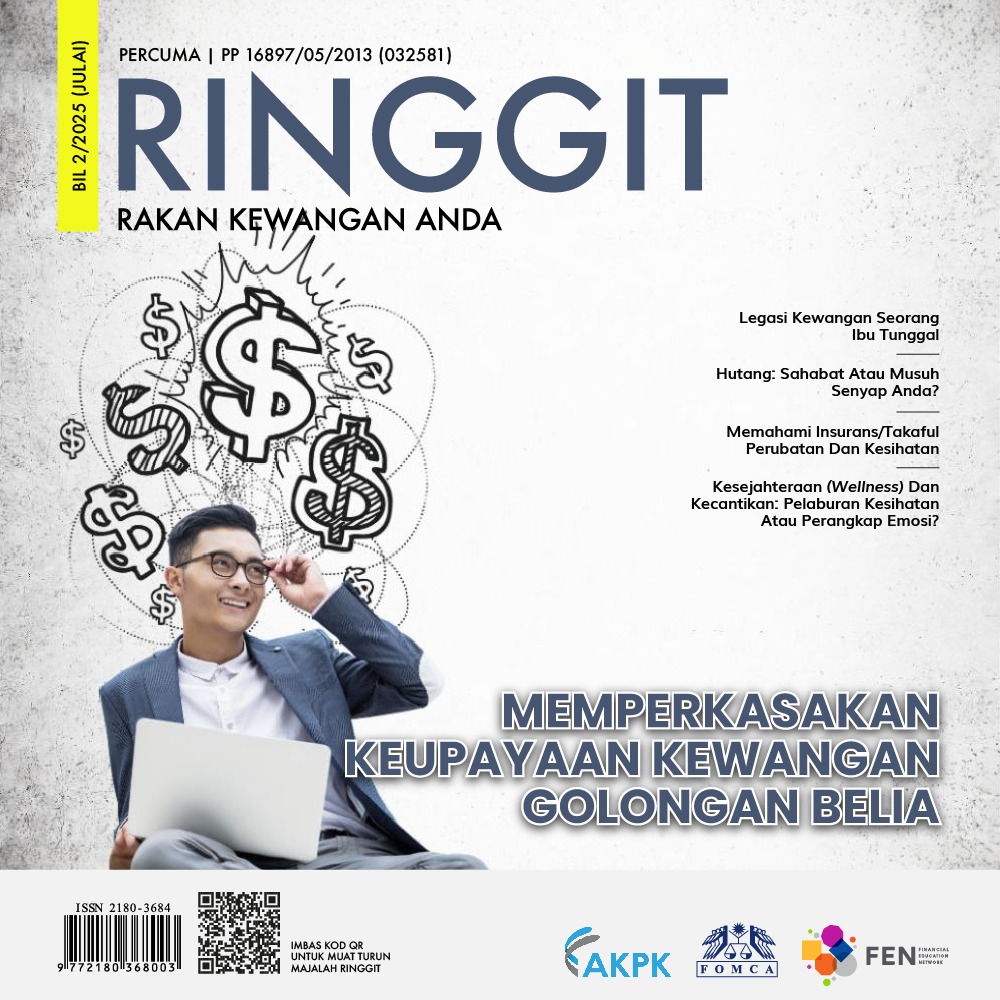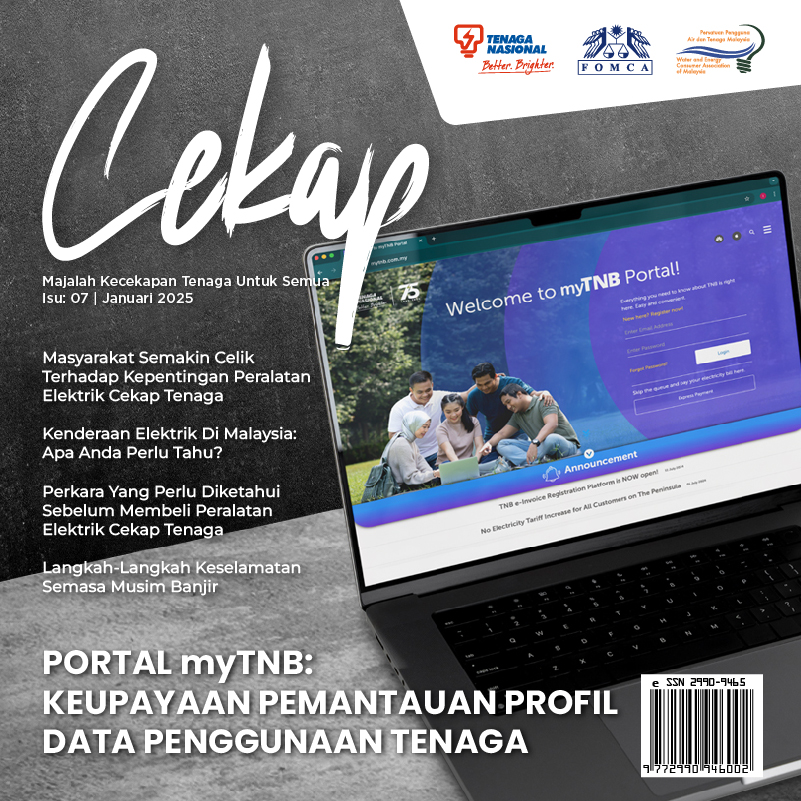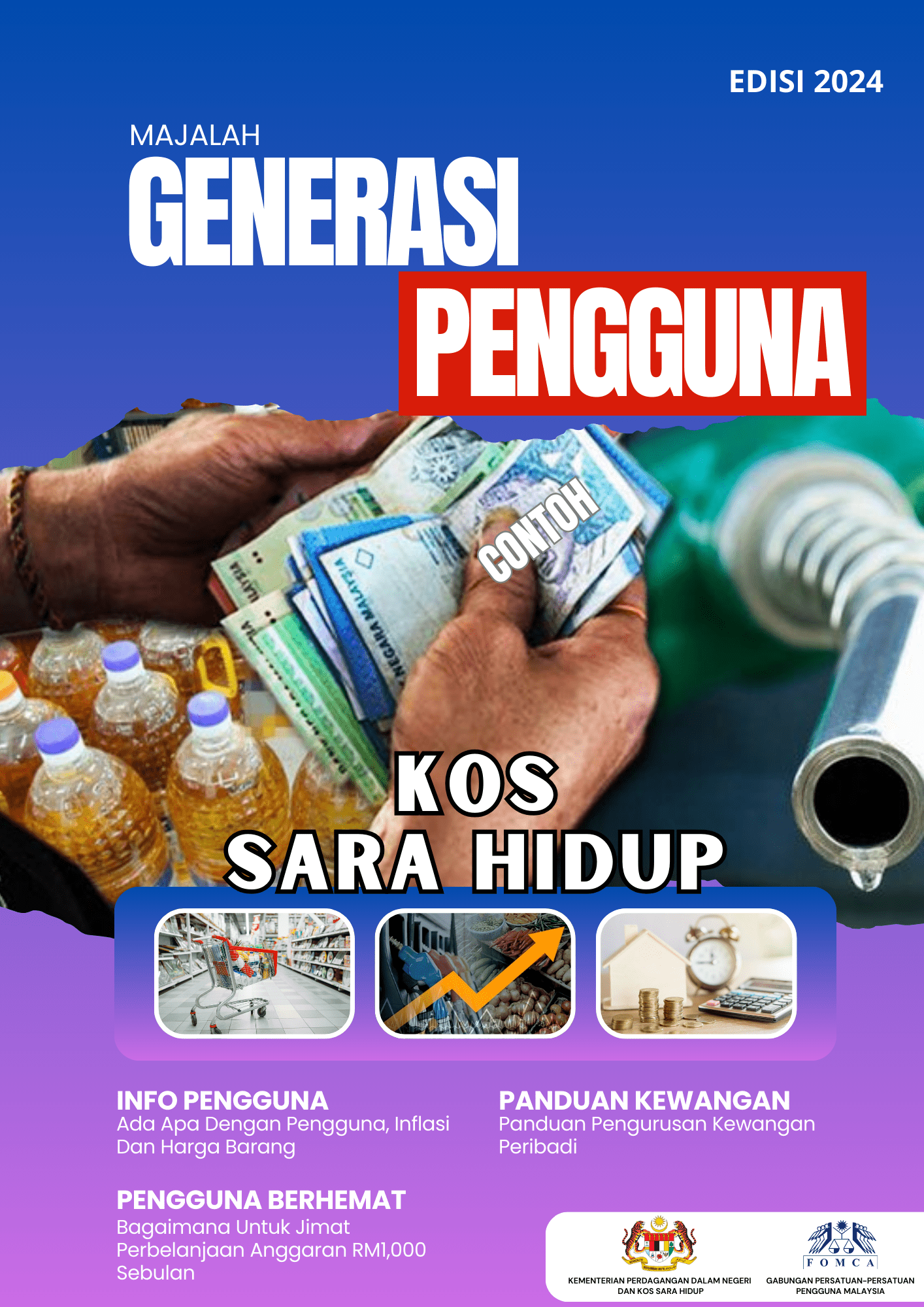Selesai segera isu minyak masak botol
- Details
 Jun 9, 2021 @ 8:54pm
Jun 9, 2021 @ 8:54pm
KUALA LUMPUR: Kerajaan diminta mencari jalan untuk mengawal kenaikan harga minyak masak dalam botol supaya ia tidak membebankan pengguna.
Timbalan Presiden Gabungan Persatuan-Persatuan Pengguna Malaysia (FOMCA), Mohd Yusof Abdul Rahman, berkata mereka maklum mengenai harga minyak mentah meningkat, namun ketika rakyat berhadapan Perintah Kawalan Pergerakan (PKP) dengan sekatan pergerakan penuh, perkara itu perlu dipertimbangkan.
Katanya, perlu difahami ketika ini rakyat ada yang tertekan kerana hilang pekerjaan, kurang pendapatan maka kerajaan perlu kurangkan beban ini dengan melihat kepada harga barang keperluan.
"Saya percaya ketika PKP ini pergerakan terhad, jadi ramai ambil keputusan beli minyak masak dalam botol kerana jumlahnya lebih banyak berbanding dalam paket yang biasanya dihadkan satu pelanggan hanya dua atau tiga paket saja.
"Perlu diingat ketika PKP ini ramai yang duduk di rumah maka keperluan minyak masak itu mungkin bertambah sepatutnya dipertimbangkan penurunan harga," katanya kepada BH mengulas isu kenaikan harga minyak masak botol yang kini mencecah sekitar RM30 bagi botol lima kilogram.
Semalam, Menteri Perusahaan Perladangan dan Komoditi, Datuk Dr Mohd Khairuddin Aman Razali berkata, harga minyak masak botol di pasaran sekitar RM30 bagi lima kilogram adalah munasabah memandangkan kenaikan harga minyak sawit bertapis yang tinggi pada masa ini.
Katanya, purata harga minyak sawit mentah (MSM) antara RM4,000 hingga RM4,500 satu tan menyebabkan kenaikan harga minyak sawit bertapis lebih tinggi kepada sekitar RM5,000 satu tan.
Mohd Yusof turut mencadangkan supaya pengeluaran minyak masak paket ditingkatkan.
Katanya, untuk tidak membebankan perlu dicari jalan penyelesaian menang-menang untuk semua pihak.
Sementara itu, Pemuda Perikatan Nasional (PN) mahu harga minyak masak botol diselaraskan bagi mengurangkan beban rakyat.
Bank ‘buru’ peminjam guna notis peguam ketika PKP, kata FOMCA
- Details
 GEORGE TOWN: Bank dan firma undang-undang mula “memburu” pelanggan yang gagal membuat bayaran dengan mengenakan yuran undang-undang terlalu tinggi ketika waktu sukar ini, kata kumpulan pengguna.
GEORGE TOWN: Bank dan firma undang-undang mula “memburu” pelanggan yang gagal membuat bayaran dengan mengenakan yuran undang-undang terlalu tinggi ketika waktu sukar ini, kata kumpulan pengguna.
Ketua Pegawai Eksekutif Gabungan Persatuan-persatuan Pengguna Malaysia (FOMCA), Saravanan Thambirajah, berkata pihaknya menerima banyak aduan daripada pengguna bahawa bank mula mengenakan caj tambahan ke atas semua hutang mereka.
Beliau berkata, berdasarkan aduan diajukan melalui pusat aduan pengguna kebangsaan, jika surat peguam dihantar kepada pelanggan yang ingkar, bank akan mengenakan caj tersebut ke akaun mereka.
Saravanan berkata, tindakan bank itu juga pantas, di mana surat peguam akan menyusul dalam masa kurang sebulan, terutama kepada mereka yang sebelum ini adalah pembayar yang baik tetapi bergelut untuk bertahan akibat PKP.
“Kejam kerana bank mencari jalan untuk menghukum pelanggan ketika berdepan pandemik. Kebanyakan mengadu selama ini mereka membayar tepat pada waktunya dan tiada tunggakan. Mereka adalah pelanggan yang menggunakan arahan debit langsung, di mana wang ditolak terus dari simpanan mereka.
“Sektor perbankan dilihat seperti cuba meraih keuntungan daripada mereka yang benar-benar terkesan akibat wabak itu. Bank Negara Malaysia perlu menyiasat sama ada ini adalah modus operandi baharu bagi bank dan peguam untuk memperoleh keuntungan,” katanya dalam kenyataan.
Saravanan berkata, bank pusat perlu mengaudit berapa banyak kes yang mendapat notis peguam dan berapa banyak bank yang mengenakan caj ke atas pelanggan mereka sejak PKP bermula.
Beliau berkata, idealnya moratorium atau bantuan lain perlu ditawarkan kepada yang berhak, terutama mereka yang sebelumnya ini membuat pembayaran tepat pada waktunya.
Read more: Bank ‘buru’ peminjam guna notis peguam ketika PKP, kata FOMCA
Banks ‘making a killing’ with legal notices during MCO, says Fomca
- Details
 June 9, 2021 5:31 PM
June 9, 2021 5:31 PM
GEORGE TOWN: Banks and legal firms are making a killing by charging exorbitant legal fees on those who miss out on payments during these hard times, a consumer group has claimed.
Federation of Malaysian Consumers Associations (Fomca) CEO Saravanan Thambirajah said they had received many complaints from consumers that their banks have levied extra charges on top of whatever they owed.
He said that based on complaints lodged through the national consumer complaints centre, if a lawyer’s letter is sent to a defaulting customer, the bank would charge the sum to their account.
Saravanan said the bank action was swift, too, with lawyer’s letters given within less than a month, especially to those who had been good paymasters but are struggling to make ends meet due to the MCO.
“During the time of the pandemic, it is cruel that banks look for ways to penalise customers. Most complained that they had been paying on time and had nothing overdue. These were customers with direct debit instructions, where money was deducted directly from their savings.
“It looks like the banking sector is trying to profit from people truly affected by the pandemic. Bank Negara Malaysia must investigate whether this is a new modus operandi for banks and lawyers to make a profit,” he said in a statement.
Saravanan said the central bank must audit how many cases were served with lawyer notices and how much banks charged their customers for these since the MCO began.
He said that ideally, a moratorium or other assistance should be offered to the deserving, especially those who have been previously servicing their dues on time.
“BNM should temporarily revise their code of conduct and guidelines with regard to serving lawyer’s notices during the pandemic. Many consumers have lost their jobs or had their incomes substantially decreased.”
Elderly hard-hit by insurance premium hikes
- Details
 09 Jun 2021
09 Jun 2021
Senior citizens are feeling the huge impact of rising medical insurance premiums, according to a consumer advocates’ group.
The Federation of Malaysian Consumers Associations (FOMCA) is urging Bank Negara Malaysia, the country’s central bank, to intervene, according to a report by Free Malaysia Today.
Paul Selvaraj, FOMCA’s secretary-general, said that senior citizens often rely on their savings to meet daily expenses. These savings are usually from the Employees Provident Fund (EPF).
However, more than 50% of EPF contributors over age 54 have savings below MYR50,000 (SG$16,000), while two-thirds (67%) do not have a minimum of MYR240,000.
Rising costs of living, coupled with increasing insurance premiums, are placing financial strain on senior citizens, he argued.
“The sharp and unjustified increases by the insurance companies put pressure on senior citizens to lapse in paying their premiums and thus they lose their coverage,” Selvaraj said, as reported by Free Malaysia Today. He cited a survey conducted by FOMCA, which found that 42% of the respondents reported premium increases between 20% and 230%.
The lack of regulation, he continued, will allow insurers to increase premiums at will and to the detriment of the elderly.
“This is a cruel approach towards senior citizens,” Selvaraj said. “But without protection by the regulators, it appears that consumers, especially the senior citizens, are at the mercy of the insurance companies if they want to maintain their coverage.”
Kerajaan perlu segera kuat kuasa Akta Kawalan Harga
- Details
 09 Jun 2021
09 Jun 2021
SHAH ALAM - Kerajaan perlu segera menguatkuasakan Akta Kawalan Harga bagi mengawal kenaikan harga barangan asas termasuk minyak masak yang berlaku ketika ini.
Presiden Gabungan Persatuan-Persatuan Pengguna Malaysia (FOMCA), Datuk Dr Marimuthu Nadason berkata, akta tersebut perlu digunakan bagi memastikan rakyat tidak terbeban dengan kenaikan harga yang tinggi.
“Kita mempunyai Akta Kawalan Harga. Kerajaan harus menggunakan akta ini pada masa ini untuk barangan asas seperti minyak masak, beras dan gula. Ini semua adalah barangan keperluan asas yang diperlukan rakyat semua.
“Setiap tahun, kita ada musim perayaan dan kerajaan guna akta itu untuk harga siling. Begitu juga sekarang, kita gunakan harga siling kepada barangan asas supaya ia tidak boleh naik mendadak.
“Kalau kerajaan tidak tolong dan membiarkan sahaja, rakyat akan jadi susah. Bagaimana untuk mereka mendapatkan sumber bahan makanan,” katanya kepada Sinar Harian pada Selasa.
Marimuthu turut mencadangkan agar kerajaan mempunyai satu sistem amaran awal terhadap barangan yang berkemungkinan kehabisan stok dalam masa terdekat.
Katanya, kerajaan juga harus memberi kelonggaran kepada pihak yang mampu mengimport barangan asas bagi memastikan stok mencukupi.
“Kerajaan harus memberi kelonggaran kepada mereka yang boleh mengimport. Tak perlu ada monopoli.
“Kalau semua barangan dimonopoli pihak tertentu, bagaimana mahu mendapatkan barangan dengan harga berpatutan?” soal beliau.
Sumber: https://www.sinarharian.com.my/article/143117/BERITA/Nasional/Kerajaan-perlu-segera-kuat-kuasa-Akta-Kawalan-Harga
© 2018 Hakcipta Terpelihara Kumpulan Karangkraf
Minyak masak subsidi habis
- Details
 9 JUN2021
9 JUN2021
SHAH ALAM - Isu kenaikan harga minyak masak sejak kebelakangan ini mencetuskan rasa bimbang pengguna khususnya peniaga makanan.
Tinjauan pada hari kedua Sinar Harian mengenai isu kenaikan harga minyak masak mendapati rak-rak menempatkan minyak masak subsidi di beberapa kedai runcit dan pasar raya di beberapa negeri telah pun kosong.
Hasil tinjauan akhbar ini juga mendapati peruncit di sekitar bandar raya ini terpaksa mengehadkan jualan minyak masak dalam peket satu kilogram (kg) kepada pembeli berikutan stok bekalan berkurangan, dalam masa sama mendapat permintaan tinggi.
Ada juga peniaga meletakkan had seorang pelanggan tidak boleh membeli melebihi dua atau tiga peket dalam satu masa.
Pemilik kedai runcit di Seksyen 15, S Kumar, 44, berkata, dia terpaksa berbuat demikian berikutan bekalan stok bahan berkenaan semakin berkurangan sejak dua minggu lalu.
“Kita terpaksa mengehadkan jualan kerana bimbang nanti ada pihak yang membuat pembelian secara banyak, sedangkan stok yang kita terima daripada pembekal semakin berkurangan,” katanya.
Kumar berkata, sebelum ini, dia mengambil sekitar tiga ke empat kotak minyak masak daripada pembekal, namun jumlah itu berkurangan sejak kebelakangan ini.
“Oleh kerana stok yang ada pada kita pun terus berkurangan, kita terpaksa mengehadkan jualan bagi setiap orang bagi membolehkan lebih ramai untuk membelinya,” katanya.
Di PERAK, bekalan minyak masak bersubsidi di sekitar bandar raya ini masih boleh diperoleh pengguna biarpun jumlah pembelian terhad.
Tinjauan di beberapa kedai runcit dan pasar raya mendapati orang ramai masih boleh mendapatkan minyak masak tersebut dengan setiap seorang dihadkan hanya dua peket.
'Aduhai cik misi, RM94,000 lesap...'
- Details
 Jun 8, 2021 @ 11:23pm
Jun 8, 2021 @ 11:23pm
Port Dickson: Seorang jururawat mendakwa kerugian RM94,000 akibat ditipu sindiket Macau Scam.
Ketua Polis Daerah Port Dickson, Superintendan Aidi Sham Mohamed berkata, wanita berusia 31 trahun itu membuat laporan polis pada 5 Jun lalu mendakwa ditipu sindiket menyamar sebagai pegawai Lembaga Hasil Dalam Negeri (LHDN).
"Mangsa menerima panggilan daripada nombor talian mudah alih yang mendakwa daripada LHDN dan memaklumkan dia mempunyai tunggakan cukai RM38,600.90 berkaitan syarikat didaftarkan atas namanya.
"Mangsa menafikan perkara ini dan panggilan disambungkan ke Ibu Pejabat Polis Kontinjen (IPK) Kuantan untuk tujuan membuat laporan polis secara dalam talian," katanya dalam kenyataan media, hari ini.
Beliau berkata, mangsa kemudiannya bercakap dengan pegawai polis berpangkat Asisten Komisioner dan diminta untuk memuat turun pautan aplikasi MyBNM.
Menurutnya, dalam aplikasi itu, pengadu kemudiannya memasukkan butiran nama dan nombor kad pengenalan miliknya.
"Aplikasi ini dikatakan untuk tujuan keselamatan supaya wang di dalam akaun mangsa tidak ditolak untuk tunggakan cukai itu.
"Bagaimanapun, apabila membuat semakan dengan pihak bank, wanita itu mendapati wang simpanan di dalam salah satu akaun miliknya sudah dipindahkan kepada beberapa akaun tidak dikenali dalam 11 transaksi dengan jumlah keseluruhan RM94,000," katanya.
Beliau berkata, kes disiasat mengikut Seksyen 420 Kanun Keseksaan iaitu menipu yang memperuntukkan hukuman penjara maksimum 10 tahun dan sebat dan boleh didenda jika sabit kesalahan.
Fomca: Pantau dan tingkatkan pengeluaran minyak masak paket
- Details
 8 Jun 2021, 9:28 pm
8 Jun 2021, 9:28 pm
Selepas isu kenaikan harga minyak masak melambung tinggi, kini timbul pula masalah kekurangan bekalan minyak masak bersubsidi atau minyak masak paket di pasaran, kata Gabungan Persatuan Pengguna Malaysia (Fomca).
Timbalan Setiausaha Agungnya, Nur Asyikin Aminuddin berkata dakwaan itu timbul selepas Fomca dan ahli gabungannya terutama di luar bandar menerima aduan daripada pengguna mengenai kesukaran mendapatkan minyak masak paket di tempat mereka.
"Fomca sedia maklum dengan isu kenaikan harga minyak. Namun begitu, keterdapatan minyak masak paket juga menjadi persoalan," kata dalam satu kenyataan.
Ekoran daripada itu, Nur Asyikin meminta Kementerian Perdagangan Dalam Negeri dan Hal Ehwal Pengguna (KPDNHEP) membuat pemantauan dan meningkatkan pengeluaran kuantiti minyak masak paket supaya lebih ramai pengguna dapat menikmati subsidi minyak masak.
“Apabila kenaikan minyak sawit yang terlampau tinggi buat masa ini, tidak mustahil ada pihak yang gelap mata untuk mengaut keuntungan yang lebih.
“Maka, pemantauan ke atas minyak masak paket perlu dijalankan secara menyeluruh supaya tiada pihak yang bermain dengan kuantiti minyak masak yang bersubsidi ini dan supaya isu integriti juga terpelihara," katanya.
Sementara itu, Nur Asyikin turut membangkitkan persoalan mengenai isu kualiti minyak masak paket bersubsidi.
Menurut Nur Asyikin, pemantauan terhadap kualiti minyak masak sangat penting kerana ia melibatkan isu kesihatan pengguna yang menggunakannya.
"Pihak berkuasa perlu memantau kualiti minyak masak paket secara berkala, bukannya berdasarkan aduan pengguna supaya kualiti minyak paket sentiasa terkawal rapi.
Read more: Fomca: Pantau dan tingkatkan pengeluaran minyak masak paket
Kenaikan harga minyak bebankan rakyat
- Details
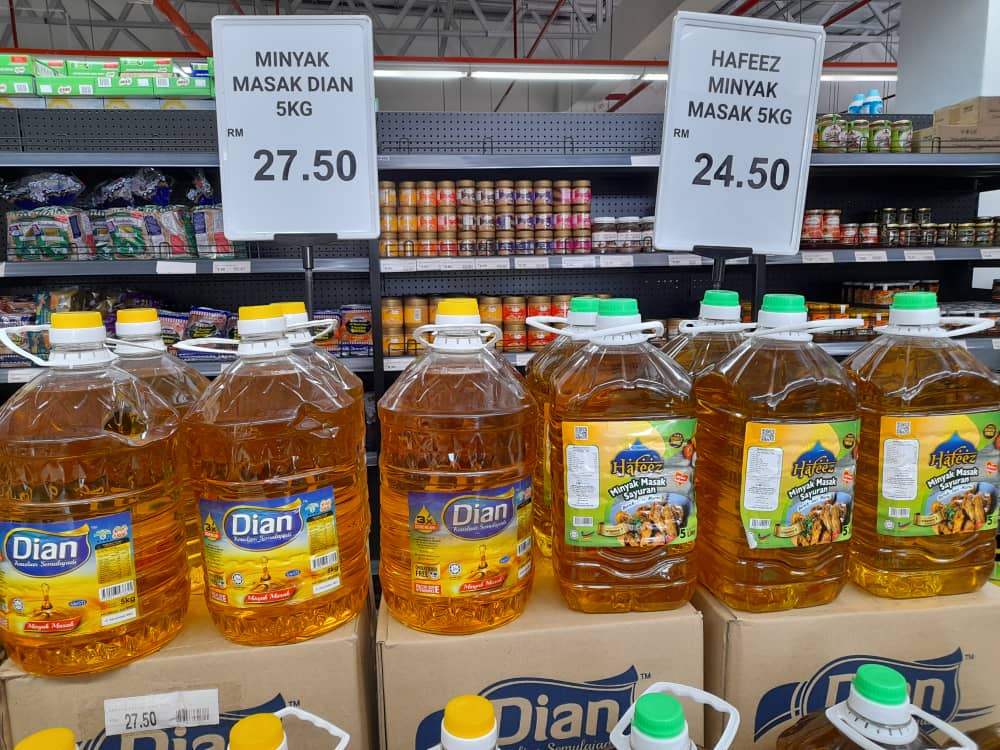 Jun 8, 2021 @ 1:48pm
Jun 8, 2021 @ 1:48pm
Kota Bharu: Kenaikan harga minyak masak botol lima kilogram (kg) selain kekurangan bekalan minyak paket bersubsidi secara tidak langsung memberi kesan serta membebankan orang ramai.
Tinjauan di beberapa pasar raya, pasar mini, dan kedai runcit di sekitar Kota Bharu mendapati harga minyak masak botol lima kg naik sehingga RM7 sebotol berbanding harga sebelum ini iaitu antara RM25 hingga RM33 bergantung kepada jenama.
Pada masa sama, tinjauan di kedai runcit pula mendapati kebanyakan peniaga mengalami masalah kekurangan bekalan minyak masak paket sejak lebih sebulan lalu menyebabkan pengguna tidak mempunyai pilihan dan terpaksa membeli minyak masak botol walaupun harganya agak mahal.
Bagi peniaga makanan, Siti Nuraisyah Ibrahim, 32, berkata, sejak dari dahulu lagi minyak masak dalam botol menjadi pilihannya disebabkan penggunaannya lebih tahan lama selain kualiti juga lebih bagus berbanding minyak masak di dalam paket.
"Bagaimanapun sejak seminggu lalu selepas kerajaan melaksanakan sekatan pergerakan penuh (SPP) bagi mengekang penularan pandemik Covid-19 saya mendapati minyak masak botol lima kilogram sudah naik harga.
"Sebelum ini harga minyak masak itu adalah antara RM25 hingga RM27, namun tidak sampai sebulan minyak masak berkenaan naik secara drastik sehingga mencecah harga RM33.
"Harga barang keperluan terutama minyak masak yang melonjak naik sangat membebankan pengguna apatah kepada mereka yang mengusahakan perniagaan menjual makanan demi kelangsungan hidup," katanya ketika ditemui di KB Mall, di sini, hari ini.
Sementara itu, seorang suri rumah, Siti Zawinah Zainal Abidin, 56, berkata, sebelum ini, harga minyak masak dalam botol dianggarkan antara RM20 hingga RM30 mengikut jenama.
"Bagaimanapun, saya sangat terkejut dengan kenaikan mendadak harga minyak masak botol lima kg berbanding sebelum ini dan dalam masa sama penggunaan minyak masak pada setiap bulan juga bertambah disebabkan mempunyai anak ramai dan setiap hari perlu memasak untuk mereka.
"Saya rasa harga minyak masak ini mula naik sejak beberapa minggu lalu kerana sebelum ini saya ada membeli minyak masak pada harga RM26, namun hari ini ia dijual pada harga RM30.50," katanya.
Panic buying a sign of anxiety: Expert
- Details
 08 JUN 2021 / 10:09 H
08 JUN 2021 / 10:09 H
PETALING JAYA: The picture of a shopping cart spilling over with toilet rolls is likely the most iconic image of panic buying just before a total lockdown.
Rather than a reflection of any fear of a prolonged tummy upset, it is symbolic of anxiety that essential supplies may run out.
Many went on a shopping spree when the first movement control order (MCO) was declared in March last year, said counselling psychologist Dr Gerard Louis
“People develop anxiety when there are uncertainties,” he told theSun.
“They just didn’t know how long the lockdown would last.”
However, there was not much panic buying when the second MCO was put in place because people were not as anxious as before.
Now, a significant daily increase in the number of new Covid-19 cases and the sharply rising death toll have brought back the anxiety.
“People are now unsure if the lockdown will be extended beyond June 14,” the Help University dean added.
He said the feeling of uncertainty has fuelled negative emotions such as anxiety and lack of self control.
“When a shopper manages to get the item he desires, it alleviates anxiety. Panic buying is some sort of a coping mechanism.”
Louis said pictures of long queues at supermarkets on social media could have further exacerbated feelings of anxiety and influenced people to binge-buy.
The government and the media could help change this behaviour by sending the right signals.
Page 62 of 111













